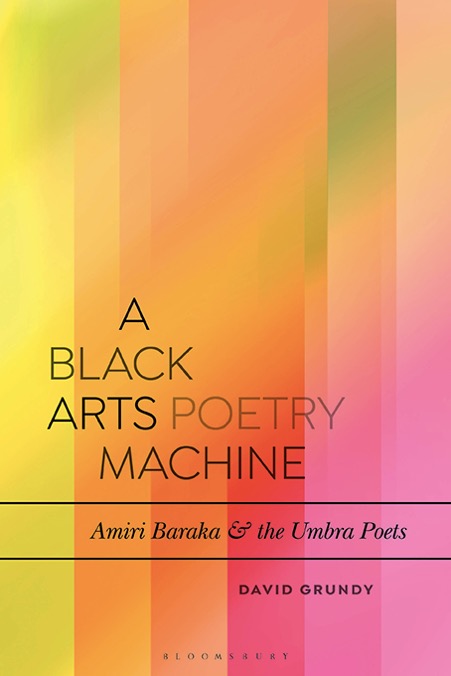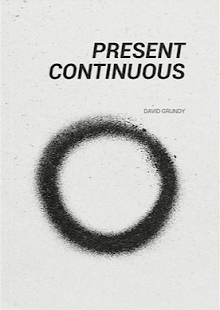Monday 25 March 2024
Pollini
Sunday 17 March 2024
"The holes in history": Tyrone Williams
The poet and scholar Tyrone Williams passed away this March: a bitter blow indeed. Williams had recently taken up a post at SUNY Buffalo after decades at Xavier University; throughout this time, he exemplified the model of the poet-critic or poet-scholar, writing longer and shorter pieces on the work of the past and present that must have numbered in the hundreds, keeping abreast of the teeming world of small press poetry with enthusiasm, warmth and rigour, teaching, appearing regularly at conferences and on panels (we shared a Zoom stage at ALA just a few weeks before he passed, in a panel on Calvin Hernton, organised by Lauri Scheyer). Williams’ strengths would require pages to enumerate in full: the laconic precision of his verse, its apt negotiation of vernacular and vehicular, of the mendacities of US politics and the tenacity of the lives that survive despite it; the wealth of his critical eye and his critical imagination. As noted when Williams’ work was discussed on Jacket 2's Poem Talk (a show he also frequented as guest), “these densely allusive poems” contain “layers of referentiality; yet the layers overlap, are torqued, punned, entendred, homophoned, and doubly and triply and quadrupally historicized — sometimes in one word or phrase, conjuring social, geographical, historical, juridical, psychological, musical, poetic, theoretical registers.” And perhaps that allusiveness--which is not the same as elusiveness--manifests that same generosity, that movement outward--toward others, toward the world--as well as inward--toward the close detail of the text, towards having one's head in a book--that characterised his way of being, in writing, in the world.
Of all of his many pieces, I’ve perhaps most often returned to a short essay published a couple of years ago at Big Other, ‘Reviewing: Ethos and Praxis’, in which he wrote on the role he saw criticism as playing. Williams writes of “thinking beyond the limits of the profession, thinking, that is, of one’s avocation above and beyond one’s vocation, beyond the ever-expanding market and public relations overload, beyond even the end of one’s life.” As he notes, this is a sentiment “espoused often enough by poets, usually in the form of a cliché (I’m writing for my future audience of readers).” But in his case, it took a deeply-felt practical dimension, a contribution to the development and sustenance of poetry community, of the mutual support of poets for other poets, and of an expansion beyond the small world of the small press and the small scene towards a genuinely expanded sense of a readership--even if that expanded sense can sometimes, for better or worse, be more wishful than real. “Having chosen a profession that allows me time to read and write,” Williams observes, “I’ve tried to balance my own reading and writing ambitions with some semblance of a commitment to a larger reading and writing community. It isn’t the best of all possible worlds—that would have been earning a living as a songwriting lyricist while reading and writing poetry in my “spare” time—but it has been a pretty good one.”
Commenting on Williams’ poetry for Poem Talk, Herman Beavers remarked that Williams “sings the holes in history”. Williams’ generosity, his sense of the relation of poetry and community, poetry and history, is something we all could learn from. And I hope that some of his body of critical writing might be collected in book form sooner or later. For now, his diligently-maintained website, Heretofore, contains a wealth of information. And there are short obituaries at Big Other here and from Xavier University here.
***
--I have a short track track on a Bandcamp release, edited by Will Montgomery, of sound works by poets responding to lines from Tom Raworth’s Ace. Available here: https://selvageflame.bandcamp.com/album/attention-moves
--And an interview conducted a couple of year ago with Aaron Shurin is out in the latest issue of The Poetry Project Newsletter, focusing on his recently republished Ubound, but traversing his whole career from Fag Rag through to the Poetry Wars and to the poetics of today. (A New and Selected Poems is forthcoming next year.)




